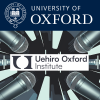St Cross Seminar: Neither God nor Nature. Could the doping sinner be an exemplar of human(ist) dignity?
If doping would be done in a sufficiently healthy, candid, autonomous, wise and fair way, would doping be OK? If so, all wrongs would lie in doping abuses, namely when done with too much health risks, deceit, coercion, fecklessness and unfairness. I will briefly advocate this important point - already made by many others - only to proceed to the further argument that under certain circumstances, perhaps nobody can exemplify human(ist) dignity and existential(ist) authenticity better than that modern witch, the doping sinner.
From a humanist-existentialist self-understanding, which I take to be the most plausible outlook on life, moral character and authenticity demand that one does not imagine one's biological constitution to be a responsibility-relieving excuse or a purpose-providing exhortation - no matter how psychologically gratifying that would be. Instead, our god- and nature-forsaken human condition should be acknowledged and if possible, testified of in practice. What better way to do so than to supplant some fundamental part of one's natural blueprint with an artefact of one's own volition, enabling oneself to realize an existence that is originally and authentically one's own? Affirming Leon Kass' dictum that "an untroubled soul in a troubling world is a shrunken human being", I concur that we must not manipulate our self-understanding so as to blind ourselves from discomforting but true aspects of the human predicament, for instance via a helping of Aldous Huxley's wellbeing-inducing drug Soma. However, in a second irony an analogy can be made between Soma and the more traditional opiate of religion. One could argue that by fabulating some (crypto-)creationist or teleological self-understanding and thinking one lives meaningfully by following the cues of one's biology, in a sense one dopes oneself into a inauthentic and morally unwarranted state of existential comfort. In a third and final irony, I again wholeheartedly affirm the widespread anti-enhancement worry that for all the health, ability, beauty and welfare that the human enhancement enterprise may bring, we will be enhancing ourselves into a state of increasingly acute existential perplexity. Indeed, as the determinants that shape and drive our existence become increasingly up for grabs, the plausibility of a prefabricated meaning to our existence crumbles, and our self-understanding becomes increasingly circular. I argue therefore that Bill McKibben is right in fearing that "should we ever escape our limits and become 'everything' we will become - nothing." However, I take this experience of existential vacuity to be at the heart of the human tragedy. I conclude that we must above all not see ourselves as creatures of Nature, God or Fortune who live meaningfully by executing their directives. Sharing the core values and concerns of Kass and McKibben, my conclusion is the polar opposite to theirs. We ought to openly affirm our god- and nature-forsaken condition and, ideally, wilfully estrange ourselves from our default biology to testify of our (unfortunate but true) condemnation to be free. To a significant extent, it would make us a Homo Ludens come full circle: living a life of our own devise, in bodies of our own devise.




